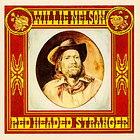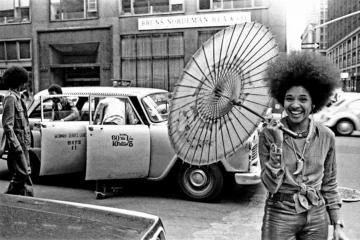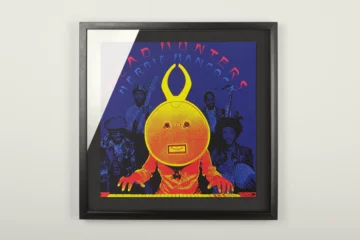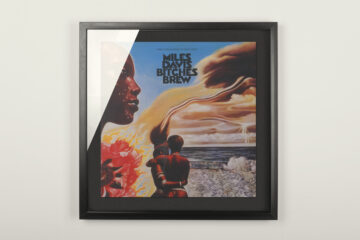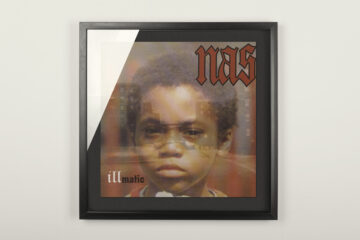»And they died with a smile on their faces«
Willie Nelson in »Blue Rock Montana / Red Headed Stranger«, 1975
This fascination with country music that is currently prevalent in indie rock – just look at acts like Waxahatchee, Wednesday or MJ Lenderman – has infected me. I used to be embarrassed by the genre, but now I’m excited about it. At first I was mainly interested in the classic, polished Nashville sound, but as time went on I found myself more and more drawn to the rougher outlaw country. Especially Willie Nelson, for whom I have nothing but warm feelings: the fact that his first name is not William or Wilfred, but actually Willie; that he starred in Michael Mann’s great feature film debut “Thief” ; that he is still one of the most prominent marijuana mascots in the USA today. And so on. It’s all great.
Ah, the voice, of course. Willie Nelson is probably the best country singer ever: there is so much longing in his voice, so much unsentimental pain. He sings well in the classic sense – you could call him the Frank Sinatra of country – but there’s also something cutting, scratchy, off-putting about him. Something very human.
The question of Willie Nelson’s best album is not an easy one; after all, the man has released over 100 studio albums in his lifetime. “Phases and Stages” (1974), for example, would be a contender, with its jazzy elegance, as would “Stardust” (1978), on which Nelson collaborated with Booker T. Jones and produced some of the finest country recordings of the Seventies. But the best introduction to Willie Nelson’s fascinating oeuvre remains “Red Headed Stranger”, his magnum opus, which turns 50 this year – and still sounds fantastic today.
Dusty sound, broken heroes
“Red Headed Stranger” was the first album that Willie Nelson recorded for Columbia Records – important because he was guaranteed complete control over his work there. However, the basic concept idea for ” Red Headed Stranger” came from Nelson’s wife at the time, Connie Koepke: she reminded her husband of the old classic “Tale of the Red Headed Stranger” by Arthur ‘Guitar Boogie’ Smith, which Nelson often played during his time as a radio DJ and often sang to his children to put them to sleep. Why not make an album that continues the story of this song, Koepke suggested…
The result was an album that has been repeatedly described as the Sgt. Pepper’s Lonely Hearts Club Band of country music. I adore the Beatles, but I now consider “Red Headed Stranger ” to be the more successful album because it remains more true to its narrative. And that’s despite the fact that the track list includes cover versions of songs written by others – the way Nelson incorporates these cover songs into the concept is masterful. Red Headed Stranger” is also convincing in every other respect: the songs are often short, but never seem sketchy or fragmented in the overall context, but flow smoothly, almost like a suite. The recurring motifs are never annoying, but rather make the album feel like an old acquaintance.
»And I’ll try to forgive, but I cannot forget«.
Willie Nelson
Of course, it is also the uniform sound that makes “Red Headed Stranger ” so well-rounded: the record is rudimentary and minimalist, the opposite of well-crafted. This is especially noticeable in comparison to “Phases and Stages” and “Stardust “. In contrast, “Red Headed Stranger ” sounds dusty, rusty, tinny, and was produced for relatively little money, leading the label to initially think it was just a demo tape. Part of the charm, of course. It has to be.
About the story on which “Red Headed Stranger is based: The year is 1901, a – shall we say – bitter preacher kills his unfaithful wife and her lover. He then rides off, tormented by his misdeed, until he finally finds redemption. The album begins with a woman’s choice and a man’s love, as Willie himself sings; then it’s about how that love drives him mad (“How he loved her so dearly, he went out of his mind”). We quickly realize that this may not be a good thing. The key line: “And I will try to forgive, but I cannot forget.”
The way Willie Nelson places the priest’s outrageous act in the context of society as a whole and zooms in on it – in the climactic “Hands on the Wheel,” he sings that the world is spinning out of control and you can only go crazy – and the way he modernizes an old story while being uncompromising and yet commercially successful, all fit the New Hollywood cinema of the time. There wasn’t always sympathy in it, but there was certainly empathy for the broken protagonists (see, for example, “Five Easy Pieces”, “The Godfather”, “Taxi Driver”).
Willie Nelson neither condemns nor defends the killer priest. Musically, Red Headed Stranger may be simple, but morally it is a highly complex album. »It was more than all this that put that gun in my hand,« Bruce Springsteen later sang on his great demo-like masterpiece Nebraska. Black and white thinking rarely works in this world, it’s not that simple. Willie Nelson knows this – and with Red Headed Stranger he has created a masterpiece that puts this realization to music in a wonderful way.


